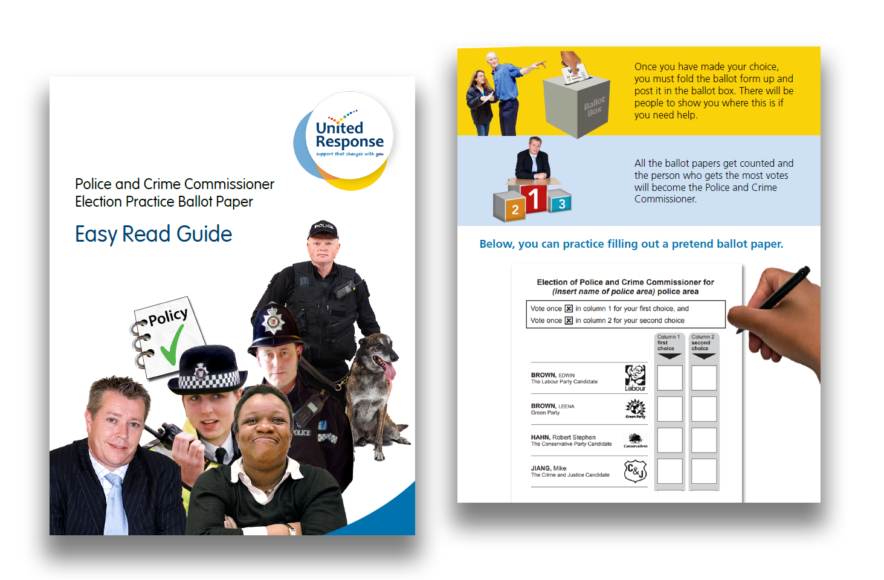New easy-read voting slips can make elections more accessible for everyone

We partnered with the Cabinet Office and Electoral Commission to produce practice voting slips for the upcoming Mayor of London, London Assembly, Combined Authority and local elections on Thursday 6 May.
The practice ballot papers are available to view and print today. They include a sample practice slip and use simple language and images to help explain the voting process in easy-to-follow steps.
The guides also outline what each election is for and how local politics can play a huge part in people’s everyday life.
Accessible Voting Day
These materials are being released as a follow up to the UK’s first-ever Accessible Voting Day last month, which shone a light on the challenges many people face when voting.
As well as raising awareness of these issues, we called on other organisations and sectors to join in digitally, helping to push for wider societal efforts to make the voting process easier for people with additional needs – such as those with learning disabilities.
Ahead of Accessible Voting Day, we also surveyed more than 2,000 people in the UK to ask for their experiences.
The survey results highlighted how poor accessibility can be a distinct barrier to a truly inclusive electoral process.
As an organisation, we are continuing to promote the rights of people with disabilities and empower them to take part in politics and vote.
Voter Seb, who is supported by United Response in Suffolk, added:
Voting is confusing for many people and the cards [ballot papers] are difficult to understand, for example, if you have a learning disability and want to vote by yourself. There are different people in communities and they need different things. Things should be in easy read for everybody.
Tim Cooper, chief executive at United Response, said:
Voting should be accessible to everyone, irrespective of their disability or the challenges they face. Sadly this is just not the case but our easy-read and accessible resources are hoping to help change that.
Far too few legally permitted adults are casting their vote at elections. People with learning disabilities in particular must be informed about their rights and supported to cast their vote if they want to.
Care providers like ourselves have a huge role to play but more must be done in society to break down barriers and help create a truly inclusive world – one where every one of its citizens can help shape the decisions which affect their daily lives.
For more accessible information about politics, elections and voting, head to our Every Vote Counts website.